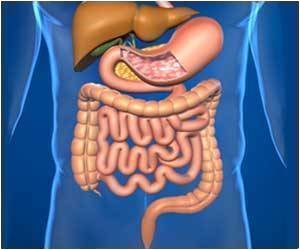Continued GI Symptoms in Elderly Female Colorectal Cancer Survivors

While depression, anxiety and fatigue are commonly monitored following cancer diagnosis and treatment, Han said that when she was working as a nurse practitioner, she heard from many colorectal cancer survivors that they were experiencing GI symptoms and having a hard time finding relief.
Advertisement
This secondary analysis cannot identify the reasons for the symptoms, but the location of cancer in the colon and rectum and treatment-related effects on the gut and the microbes living there could be a factor, said Han, also an investigator in the Cancer Control Program at The Ohio State University Comprehensive Cancer Center.
Gastrointestinal Symptoms and Psychological Distress in Cancer Survivors
The study did show that GI symptoms were accompanied by the psychological distress experienced by many cancer survivors – but whether gut problems were causes or consequences of quality-of-life issues, particularly fatigue, sleep problems, depression and anxiety, could not be determined.
“Cancer survivors with high psychological symptoms may have a higher stress level that could inflame the gut and lead to GI symptoms,” Han said. “The causal direction could be bidirectional – which comes first doesn’t really matter because both types of symptoms are present.”
Data on 413 colorectal cancer survivors for this research came from the Women’s Health Initiative’s Life and Longevity After Cancer (LILAC) Study involving postmenopausal women who had been diagnosed with certain types of cancer. Their average age was 71 years, with an average age at the time of diagnosis of almost 63. Among the sample, 63.2% had undergone surgery for their cancer, and 34.4% had received multiple treatments, including surgery and chemoradiation.
The secondary analysis included data from questionnaires assessing a variety of measures, including demographics, GI symptoms, non-GI symptoms, dietary habits and physical activity, as well as how these measures affected quality of life.
Han said this is the first study in cancer survivors to document the impact of individual GI symptoms versus considering gut issues all together in a cluster.
Abdominal bloating and gas was reported by 54.2% of participants (17.2% patients reported moderate to severe symptoms), followed by constipation (44.1% overall, 12.6% moderate to severe), diarrhea (33.4% overall, 10.4% moderate to severe) and abdominal/pelvic pain (28.6% overall, 6.8% moderate to severe). When all symptoms were combined into a composite score, 15.4% of survivors reported moderate to severe overall GI symptoms.
Being within five years of diagnosis and surviving a stage III cancer were associated with a higher likelihood of reporting persistent GI symptoms. And the severity of depression, anxiety, fatigue and sleep problems was higher in the GI symptom group than in women without GI symptoms.
These and other findings suggest the need for comprehensive interventions for colorectal cancer survivors, Han said, such as psychosocial support, pain management, individualized nutritional counseling and physical rehabilitation.
Source: Eurekalert
Source link
#Continued #Symptoms #Elderly #Female #Colorectal #Cancer #Survivors



